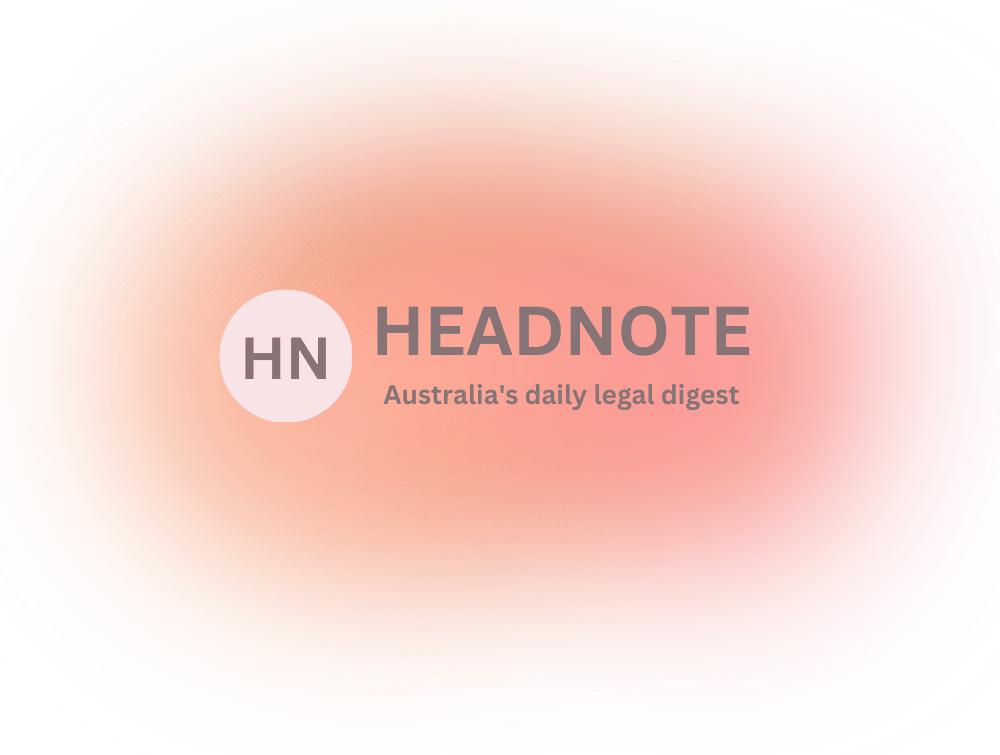
Was this email forwarded to you?
Sign up for our free daily email newsletter at headnote.com.au
Daily wrap
From earlier in Newlinds’ career - Dyson Heydon clashes with ACTU lawyer Robert Newlinds at Trade Union Royal Commission - YouTube
The Fair Work Commission has launched legal action against Health Workers Union Victorian secretary Diana Asmar, alleging she approved payment of false invoices for printing and got cash back.
Editor’s picks
It is 100 years since women were allowed to serve on juries in Queensland, the first state in Australia to introduce what was then a radical reform. What are the challenges today for the composition of juries to reflect the judgment of a defendant’s peers and reflect modern democratic values?
BEECH-JONES J: I am not advocating this as a practice, Mr Donaghue, but if a judge came down and punched a counsel and was sued for damages, that would not be in a judicial capacity.
MR DONAGHUE: No, the words will obviously fall to be interpreted, and, yes, if the judge is brawling with counsel in the court room, then I think we can all agree that that would not be in a judicial capacity.
On Monday 12 August 2024, the Centre for Comparative Constitutional Studies at Melbourne Law School hosted a Global Public Law Seminar titled 'University Governance, Academic Freedom and Freedom of Speech: Perspectives from Constitutional Law.' The panel discussion was presented by Associate Professor William Partlett, Professor Adrienne Stone and Professor David Rabban and chaired by Associate Professor Scott Stephenson.
"It is commonly said that some form of parliamentary sovereignty or parliamentary supremacy is part of Australian constitutional law. Yet no Australian legislature has 'the right to make or unmake any law whatsoever,' and Australian courts are 'recognized by the law as having a right to override or set aside the legislation of Parliament.' So what do Australians talk about when they talk about parliamentary sovereignty? The article draws on a comprehensive review of the Australian literature to identify four possible explanations of what Australians mean when they invoke parliamentary sovereignty or parliamentary supremacy. The article argues that references to parliamentary sovereignty and parliamentary supremacy in the Australian context either cannot stand, need not stand, or do not helpfully stand as efforts to explain Australian public law. This article argues there is no legislature on the Australian continent that should be described in terms of 'sovereignty' or 'supremacy,' and that those terms should be discarded from the literature. Reliance on parliamentary sovereignty and parliamentary supremacy in Australia is reliance on an inaccurate, inadequate, or unnecessary simile."
Like our free newsletter? The best way to support us is to tell your colleagues and friends about our newsletter.
We welcome your feedback, which you can send to [email protected]